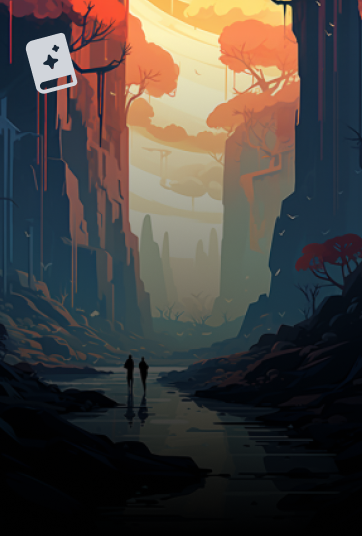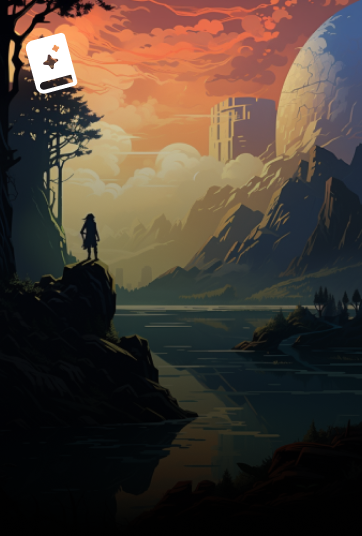
Destiny's Way
We don't have a description for this book yet. You can help out the author by adding a description.
Series
Series
2 primary books210 released booksStar Wars Legends
Star Wars Legends is a 210-book series with 5 primary works first released in 1976 with contributions by Michael Reaves, Roy Thomas, and Alan Dean Foster.
Series
17 primary books21 released booksStar Wars: The New Jedi Order
Star Wars: The New Jedi Order is a 21-book series with 17 primary works first released in 1999 with contributions by R. A. Salvatore, Karen Traviss, and Michael A. Stackpole.
Reviews
Popular Reviews
Reviews with the most likes.
If I could choose a term that described my overall impression of this book, it would most likely be: pleasantly dissatisfied.
Yes, an oxymoron.
Simply put, I expected more from this book. The pleasant part comes from the way certain events played out, covering major ground without treading too heavily on any particular subject.
The dissatisfied part comes from the blandness of the writing. I could discern no noticeable style or flair to Williams' writing, though, to his credit I was never annoyed by repetitive phrases or cliché situations.
I also never noticed any particularly well-written sections.
Admittedly, Traitor is a difficult success to follow, with the deep introspective passages, and intrigue surrounding Vergere's intentions. Instead, Destiny's Way is a sprawling epic, with appearances by a huge cast of characters, including a rather disturbing, but revealing portrayal of Ackbar. Because of its epic proportions, Destiny's Way doesn't have a chance to focus on any particular character for long.
Some of the things I enjoyed about this novel were the reappearance of Luke as a leader, taking large strides to help the Jedi. His dislike of Vergere is refreshing, but seeing Luke come to terms with a different point of view about the nature of the Force is the first truly original thing I've seen in the New Jedi Order to date.
Luke and Mara's scenes were comfortable, though I'm a bit disturbed by how little Ben Skywalker seems to matter to them right now. Or at least by the way Williams portrays their emotions about him. The author had many opportunities to shed more insight into the characters' emotions and actions, but did not capitalize on those chances.
Looking back at the book, after having read it, I realize that it was more action-oriented rather than character-oriented. That fact is what makes the novel unremarkable. A very good action-oriented novel might be remembered as great fiction, but this novel is simply another decent Star Wars novel. Had it been a paperback publication, this review would be much more positive. However, I don't feel as if my $26 was well spent.
I must give credit to Williams for one thing I found fantastic. The space battles were indeed large and involving. Not to slight Aaron Allston or Michael Stackpole, whose portrayals of space battles are second-to-none, but Williams is the first author who has truly made me see a humongous battle, encompassing tens of thousands of troops on either side, in full-scale combat. He showed us utter fatigue and desperation of the fighter pilots that never seemed to show before.
We got to see the toll this war has taken on many of these pilots.
With that exception, and the final battle being the crown jewel of the novel, the myriad of events occurring in this book damage what might have been a fantastic story. Hopefully, this explains the oxymoron ‘pleasantly dissatisfied'.
Now on to Sean Williams and Shane Dix's trilogy, for which I hold very little hope...
































